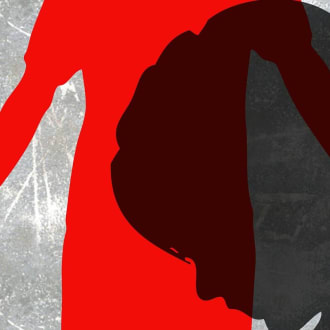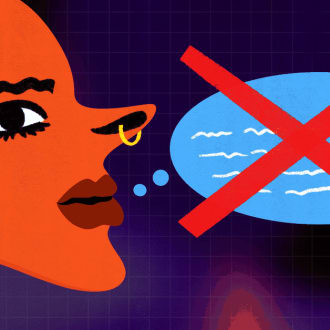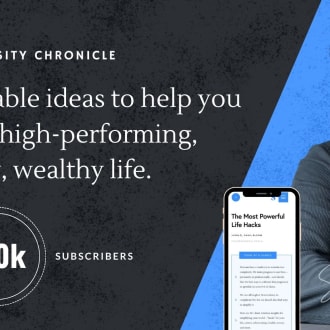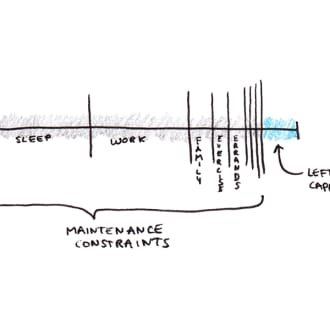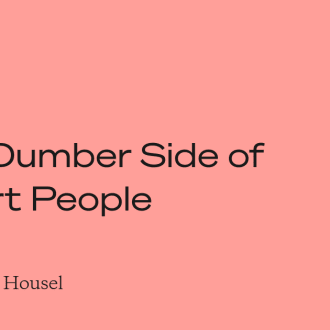
The Best Articles in Psychology
The most useful articles and videos in Psychology from around the web, curated by thought leaders and our community.
Refind focuses on timeless pieces and updates the list whenever new, must-read articles or videos are discovered.
Top 5 Psychology Articles
At a glance: these are the articles that have been most read, shared, and saved in Psychology by Refind users in 2024 so far.
Videos
Watch a video to get a quick overview.
18 Shocking Psychology Lessons To Understand Yourself
Gurwinder Bhogal is a programmer and a writer.Gurwinder is one of my favourite Twitter follows. He’s written yet another megathread exploring human nature, c...
The test that reveals your hidden strengths
This interview is an episode from @The-Well, our publication about ideas that inspire a life well-lived, created with the @JohnTempletonFoundation.Subscribe ...
How Your Beliefs Control Your Happiness
Derek Sivers is so skeptical of the human psyche that he doesn’t even trust himself.His strong stance on this aspect of human psychology makes him more open ...
How to get motivated even when you don’t feel like it
Explore the psychology of intrinsic and extrinsic motivation, and dig into how these forces contribute to our drive.--Motivation is complicated. Psychologist...
What is ...?
New to Psychology? These articles make an excellent introduction.
An Introduction to the Flynn Effect
Researchers studying the Flynn effect have found that scores on IQ tests have actually increased over time.
What Is the Dissociative Mind?
When we face overwhelming stress, disconnecting can be a coping skill.
«Dissociation happens because the person is engaged in an automatic activity and is not paying attention to his or her immediate environment.»
What Is The Goal of Psychotherapy?
Is therapy's goal subjective happiness, objective well-being, or meaningfulness?
What is Self-Actualization? A Psychologist's Definition [+Examples]
This article discusses self-actualization, where self-actualization research stands today, and why self-actualization is important.
How to ...?
How to Improve Your Self-Esteem in 5 Minutes or Less
There are no quick fixes for low self-esteem: There’s no profound insight your therapist can give you that will suddenly improve your self-esteem There’s no secret mantra that will unlock your inner…
«If you spend your entire childhood learning that you’re not good enough or not lovable, that’s not something that’s going to change overnight.»
How to Stop Reassurance Seeking
If you struggle with chronic anxiety, self-doubt, and low confidence, one of the hidden drivers could be a habit of reassurance seeking...
«surprise is an emotional amplifier: take any difficult emotion, add surprise, and the emotional intensity becomes much greater.»
How to break unhealthy habits: Stop obsessing over willpower and focus on routines
Understanding and changing the environment in which habits form is a critical step when it comes to breaking unwanted behaviors and forming healthy ones.
«Another path to habit change involves friction: in other words, making it difficult to act on undesirable habits and easy to act on desirable ones.»
How to admit you’re wrong
Admitting wrongdoing isn’t a failure, it’s an opportunity.
«Fetterman’s research shows admitting wrongness actually improves our reputation. By owning up to our errors, others see us as friendlier and more agreeable.»
How to be kinder to yourself
Self-compassion techniques aren’t self-indulgent – they’ll tame your inner critic while helping you change for the better
«So I dedicated 10 minutes to sit down and reflect on the same questions I ask my clients to help them clarify their values. These were my answers:»
Trending
These links are currently making the rounds in Psychology on Refind.
5 Lessons from a Conversation With a World-Renowned Happiness Expert
The Curiosity Chronicle has quickly become one of the most popular newsletters for growth-minded individuals in the world. Each week, subscribers receive a deep dive that covers topics ranging from…
«A number of scientific studies—including Dr. Waldinger's Harvard Study—have found that the health impact of loneliness is quite dire.»
The vorfreude secret: 30 zero-effort ways to fill your life with joy
How can you change your life for the better today? Learn not just to appreciate happiness – but to anticipate it
«“Today I will look for good moments and remember them.” Mort suggests: “May I be open to joy and have many moments of joy ahead.”»
When Procrastination is Productive
Productivity isn’t throwing out all your existing commitments in the fanatical pursuit of a big ambition. Instead, choosing what matters and organizing your time and energy to reach it.
Studies Show Self-Compassion is the Motivator You’re Missing
Pushing ourselves and holding ourselves accountable are how we achieve success. Unfortunately, many of us mistake harsh self-criticism and self-castigation for “pushing ourselves.” And that has the…
«“There are a whole lot of ways to be perfect, and not one of them is attained through punishment.” —science fiction author Ursula K. Le Guin»
How to Start Small Rituals That Make Every Day Feel Special
A psychologist and Harvard professor lets us in on the magic behind meaningful routines.
Short Articles
Short on time? Check out these useful short articles in Psychology—all under 10 minutes.
11 Philosophical Razors to Simplify Your Life
A collection of eleven philosophical razors; principles that can simplify your life by getting rid of useless or unlikely explanations.
«Wittgenstein’s Ruler, the idea that judgements made by an unreliable source tell you more about the source than about the claim itself.»
Slow Down to Fall in Love Again
“Smile, breathe and go slowly.” –Thich Nhat Hanh
«if we slow down with our tasks, give them some space and allow ourselves to fully immerse ourselves in each activity … it can transform the experience»
The Dumber Side of Smart People
Most people will die after three days without water. But drinking too much can be equally dangerous – water intoxication is deadly, and during rigorous training about a dozen soldiers per year are…
3 Hard Truths You Need to Hear
Welcome to the realm of harsh truths, where I, Mark Manson, will make you question everything you've ever believed in.
«Next time you’re absolutely sure about something, take a step back and ask yourself if it’s something you’ll be embarrassed about in a decade.»
How fear of regret influences our decisions
One of the primary motivators of human behavior is avoiding regret. Before the legendary behavioral economists Daniel Kahneman and Amos Tversky formalized prospect theory and loss aversion, they…
Long Articles
These are some of the most-read long-form articles in Psychology.
100 tiny changes to transform your life: from the one-minute rule to pyjama yoga
Want more health and happiness in the year ahead – without having to work too hard? Here are tried and tested tweaks that can lead to big improvements
«Walking outdoors every day. I find it hugely beneficial for my mental and physical health, which has had a domino effect on my whole life.»
What the Science Actually Says About Unconscious Decision Making
There is no free lunch when it comes to tricky decisions; you have to do the thinking.
«Albert Einstein once noted that “intuition is nothing but the outcome of earlier intellectual experience.”»
Everyone is on their phones. But is it really phone addiction we’re experiencing?
There is no standard diagnosis for ‘phone addiction’, and a debate rages about whether there should be. But will medicalizing a behavior help or harm those suffering from it?
«In its simplest form, addiction is the tipping point at which compulsion turns into dependency,»
The Ultimate Guide to Unstoppable Motivation
The Pacific Crest Trail is renowned as one of the most arduous—and sometimes dangerous—hiking trails in America. Every summer, thousands of intrepid walkers set off on the trail, beginning in spring…
«those who had higher levels of both introjected and identified motivation were far more likely to complete the trail.»
Since when is philosophy a branch of the self-help industry?
The discipline today finds itself precariously balanced between incomprehensible specialisation and cheap self-help
«Many people buy books that supply the illusion of thinking»
Thought Leaders
We monitor hundreds of thought leaders, influencers, and newsletters in Psychology, including:
What is Refind?
Every day Refind picks the most relevant links from around the web for you. Picking only a handful of links means focusing on what’s relevant and useful.
How does Refind curate?
It’s a mix of human and algorithmic curation, following a number of steps:
- We monitor 10k+ sources and 1k+ thought leaders on hundreds of topics—publications, blogs, news sites, newsletters, Substack, Medium, Twitter, etc.
- In addition, our users save links from around the web using our Save buttons and our extensions.
- Our algorithm processes 100k+ new links every day and uses external signals to find the most relevant ones, focusing on timeless pieces.
- Our community of active users gets the most relevant links every day, tailored to their interests. They provide feedback via implicit and explicit signals: open, read, listen, share, mark as read, read later, «More/less like this», etc.
- Our algorithm uses these internal signals to refine the selection.
- In addition, we have expert curators who manually curate niche topics.
The result: lists of the best and most useful articles on hundreds of topics.
How does Refind detect «timeless» pieces?
We focus on pieces with long shelf-lives—not news. We determine «timelessness» via a number of metrics, for example, the consumption pattern of links over time.
How many sources does Refind monitor?
We monitor 10k+ content sources on hundreds of topics—publications, blogs, news sites, newsletters, Substack, Medium, Twitter, etc.
Who are the thought leaders in Psychology?
We follow dozens of thought leaders in Psychology, including Joshua Becker, Dan Ariely, Dr. David Ballard, Aleks Krotoski 😷💙, Neuroscience News.
Missing a thought leader? Submit them here
Can I submit a link?
Indirectly, by using Refind and saving links from outside (e.g., via our extensions).
How can I report a problem?
When you’re logged-in, you can flag any link via the «More» (...) menu. You can also report problems via email to hello@refind.com
Who uses Refind?
450k+ smart people start their day with Refind. To learn something new. To get inspired. To move forward. Our apps have a 4.9/5 rating.
Is Refind free?
Yes, it’s free!
How can I sign up?
Head over to our homepage and sign up by email or with your Twitter or Google account.
Keep Learning
Learn something new, guided by experts. Deep Dives are carefully hand-curated series of time-tested articles and videos from around the web.
Get the big picture on your favorite topics.

